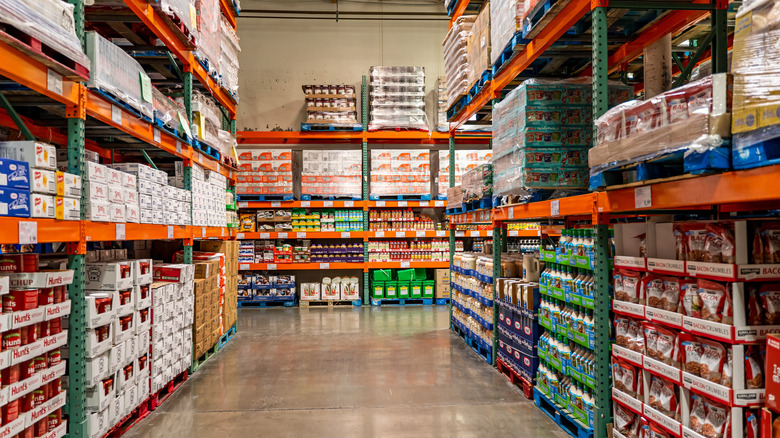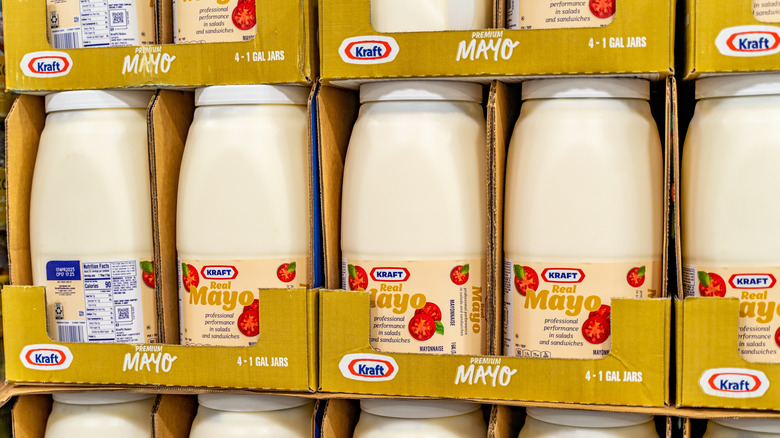The Kirkland Product Costco Discontinued Before It Even Reached Shelves
Costco's store brand, Kirkland Signature, has a reputation for high quality at low prices, and there's a reason for that. Costco doesn't aim to make products that are just as good as the name-brand versions; it aims to make products that are better. "I want to get that little bit of extra differentiation from the national brand," Costco CEO Ron Vachris told The Wall Street Journal (via YouTube).
But sometimes, the brand's product developers just can't figure out how to get that extra edge to ensure it will be a Kirkland Signature food Costco customers buy on repeat. Take mayonnaise, for example. Costco pulled a new-and-not-so-improved mayo before it even hit the shelves. Initially, the chain tried to enhance the condiment's nutrition by adding omega-3 fatty acids. However, mayonnaise is a delicate emulsion: That's why it's so important to follow the rules when making homemade mayo. The added fatty acids destabilized the emulsion and broke the mayo.
But don't feel too bad about Kirkland's mayonnaise missteps. Overall, Kirkland Signature is raking in significantly more cash than name-brand condiment kingpin Kraft Heinz. In 2024, just the Kirkland Signature line generated $86 billion, while sales of all of the Kraft Heinz products combined amounted to around $26 billion.
Costco prioritizes the quality of Kirkland products
Kirkland Signature's success comes from Costco's unique approach to product development and private label branding. Some, like the mayonnaise, were Kirkland Signature flops. Others are success stories, like the brand's bacon, egg, and cheese breakfast sandwich. Ron Vachris initially nixed the item. The sandwich was just as good as the name-brand version, but he thought it could be better. Costco's buyers renegotiated with the supplier, and ultimately, the Kirkland Signature breakfast sandwich ended up with 40% more meat.
From the start, Costco focused on quality. Before launching Kirkland, the chain sold a curated selection of products from top national brands. When Costco first started making private label products to offer better value to customers, it used many different brand names. This was typical for retailers at the time because a single store brand was considered a risk. If customers had an unsatisfactory experience with one product, it could taint the entire brand. However, it found that customers — and even Costco managers — weren't linking the names of the store-brand items with Costco itself. Costco's decision to use a single store brand — Kirkland Signature — across many different categories meant that the retailer had to double down on quality.
Die-hard Hellmann's fans don't need to worry though. Even if Costco perfects the mayo formula, you'll still see your old favorite on the shelves. "We still want to sell name brands," Sarah George, senior vice president of food merchandising, told The Wall Street Journal (via YouTube). But George hopes you'll convert to Kirkland anyway. "We really use Kirkland Signature strategically to make sure that we're priced correctly on brands and we're offering a better quality," she said.

